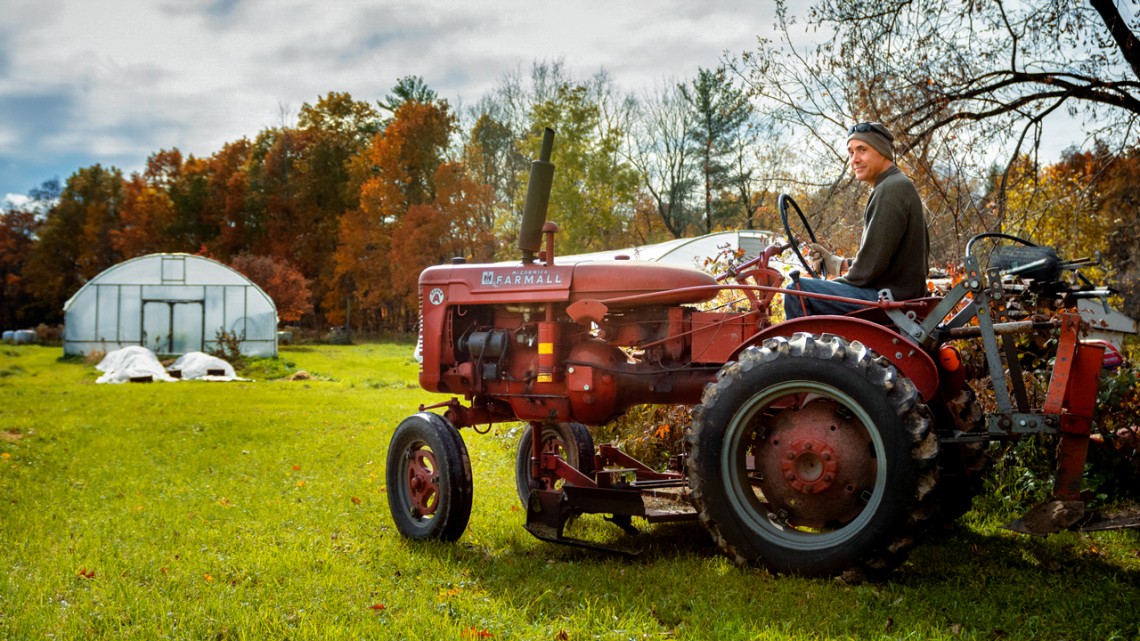
Cornell Farm Ops Program Manager Dean Koyanagi ’90 works his farm near Ithaca. In the latest CCE podcast, Koyanagi shares the latest Farm Ops programming from around New York and how veterans can get involved.
CCE podcast profiles Cornell Farms Ops’ work with veterans
By Melissa Jo Hill
Land access, raising capital, rapidly changing markets and technology – these are issues faced by both aspiring and seasoned farmers.
For military veterans interested in starting a career in agriculture, these problems can be exacerbated by limited funding for education and training, and fewer community and social connections, which are common challenges for veterans re-adjusting to civilian life.
That’s where Farm Ops, a project of the Cornell Small Farms Program in partnership with Cornell Cooperative Extension, comes in. By providing resources for education and training, facilitating on-site apprenticeships and mentorships with experienced growers and producers, and keeping tabs on the local network of resources and opportunities, Farm Ops programming gives soldiers tools for successful agriculture businesses beyond their military service.
In a special Veterans Day episode of CCE’s “Extension Out Loud” podcast, hosts Katie Baildon and Paul Treadwell speak with project coordinator Dean Koyanagi ‘90 on the scope of the Farm Ops project across New York state.
A former Marine with years of small-farm experience, Koyanagi is highly qualified for the role, which began to develop after passage of the 2014 Farm Bill.
“At that point, [the Cornell Small Farms Program was] really trying to figure out how we could reach out to veterans to support them coming back into rural communities and trying to start farms,” said Koyanagi. “It’s a really hot topic that people are really interested in figuring out – why are veterans not coming back to these rural communities?”
To support that effort, Koyanagi strives to meet veteran farmers where they are in their careers – from beginners to mid-business – to provide actionable resources to foster growth. Farm Ops works to engage veterans who are transitioning back to their communities by offering educational stipends for online and in-person training across the state.
By tapping into the statewide network of extension associations, the program can point veterans toward local educators and experts working in their own communities. In addition, Farm Ops connects established farms with veterans looking for on-the-job training opportunities.
For example, with approval through the Department of Veterans Affairs, a farmer can work with a veteran as an apprentice for two years.
“[The farmer] is paying the veteran a training wage,” Koyanagi said, “but the veteran gets their housing allowance [from the VA], which is great. If you’re trying to raise your family on a training wage, you can make that work.”
Full episodes of “Extension Out Loud,” including descriptions and transcripts of each episode, can be found online. Episodes can also be streamed on Apple Podcasts and SoundCloud.
Melissa Jo Hill is communications specialist and writer with Cornell Cooperative Extension.
Media Contact
Get Cornell news delivered right to your inbox.
Subscribe


